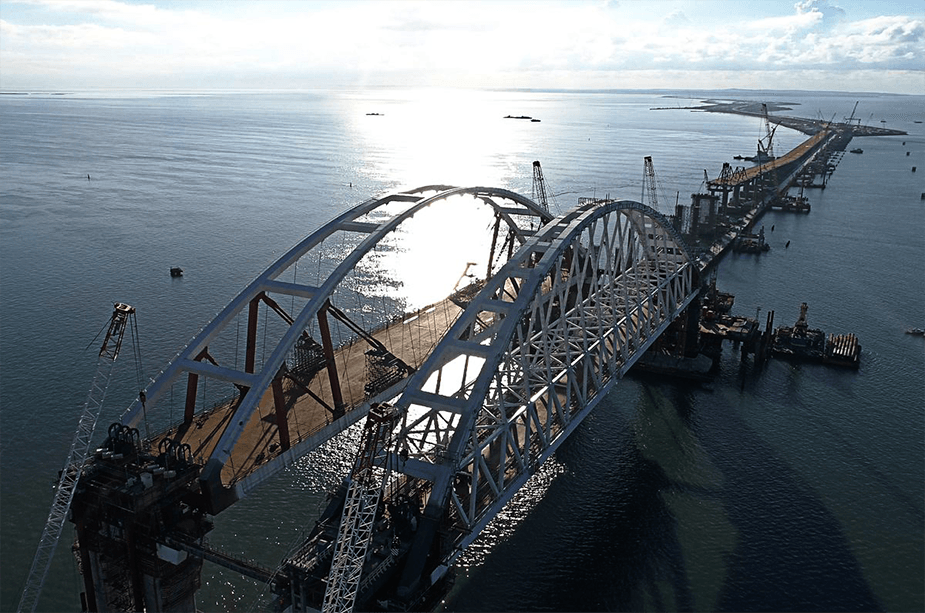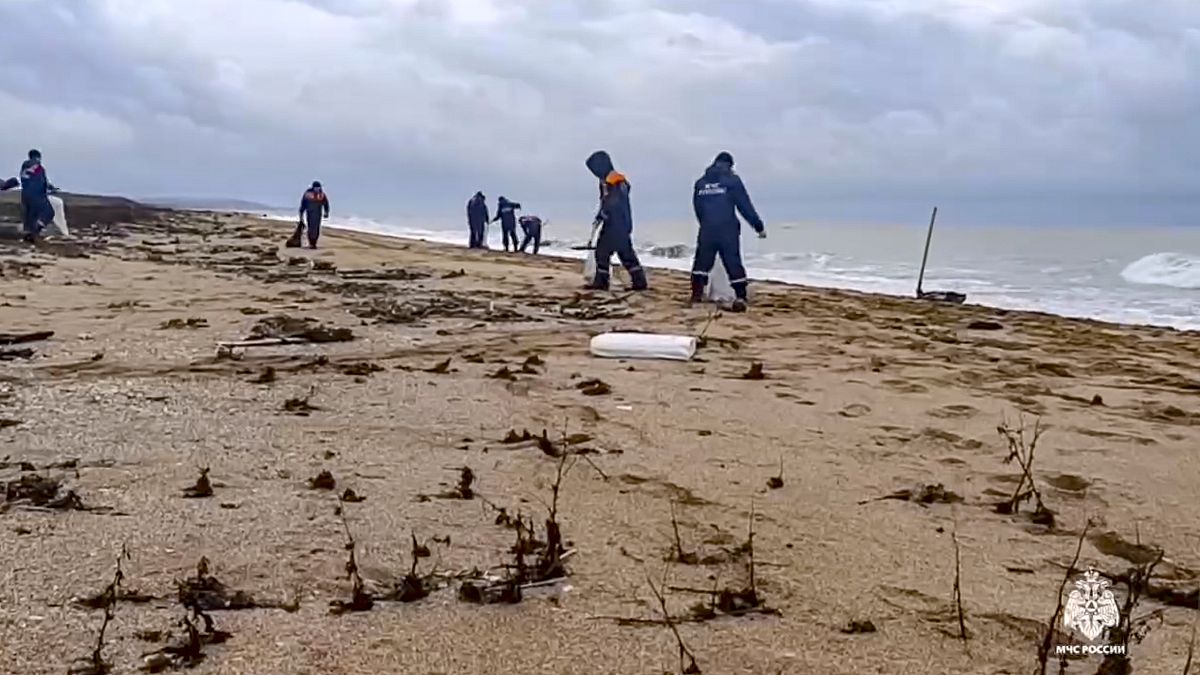
By : Georgiy Klyuyev
Marine Consultant
The delay in establishing command centers and declaring emergencies has raised questions about the effectiveness and transparency of the response to the environmental crisis in the black sea . The situation continues to develop, with ongoing clean-up operations and monitoring of the affected areas after the Kerch Strait Oil Spill
The spill has caused devastating ecological consequences.
russian authorities reported approximately 2400 metric tons of oil products leaked into the sea.
However, international experts, estimate the spill to be around 8000 tons, reflecting discrepancies in official and independent reporting.
The Delfa Dolphin Rescue and Research Center reported dozens dolphin fatalities, while marine ecosystems have been severely disrupted. Coastal regions, once thriving with biodiversity, are now blanketed with oil residues, threatening local wildlife and habitats. Environmental organizations have raised alarms, warning that the full extent of the environmental damage may not be fully disclosed by Russian authorities.
In addition to marine life, the spill has disrupted local economies heavily reliant on fishing and tourism. Beaches, particularly in Crimea, are now polluted with thick layers of oil, discouraging visitors and devastating the livelihoods of local communities.
Response and Criticism
Russian authorities declared a regional state of emergency in Crimea Peninsula , mobilizing over 10,000 personnel for cleanup operations. Efforts included removing over 100,000 metric tons of contaminated sand and soil. However, the response has drawn significant criticism.
Thousands of volunteers, many inadequately trained and equipped, were deployed to cleanup efforts.
Critics, including Russian scientists, highlighted the lack of heavy machinery and coordination, which hindered effective remediation.
Independent environmental experts have condemned the lack of timely and effective responses.

Natalia Gozak, director of Greenpeace Ukraine, warned of long-term ecological consequences comparable to previous oil spills in the region.
Despite the severity of the disaster,Russian state media initially downplayed its impact, claiming prompt containment and minimal damage.
Satellite imagery and independent reports contradicted these claims, revealing extensive oil slicks spreading far beyond the officially reported areas.

Regulatory Failures
The disaster highlights systemic issues in Russia’s maritime operations, particularly the use of aging and poorly maintained vessels.
Both tankers involved were over 50 years old and ill-equipped to handle severe weather conditions.
Ukrainian Navy spokesperson Dmytro Pletenchuk remarked, “These are quite old Russian tankers. You can’t go to sea in such a storm. The russians violated the operating rules. The result is an accident.”

International Accountability
The spill raises significant questions about Russia’s compliance with international maritime and environmental agreements, including the International Convention for the Prevention of Pollution from Ships (MARPOL) and the United Nations Convention on the Law of the Sea (UNCLOS).
By failing to prevent the disaster and responding inadequately, Russia may have violated several international commitments.
Mechanisms to address accountability include:
Sanctions and Reparations: Imposing sanctions on Russian maritime enterprises and establishing an environmental reparations fund.
Legal Actions: Initiating proceedings through the International Tribunal for the Law of the Sea (ITLOS) or the International Court of Justice (ICJ).
Enhanced Oversight: Strengthening inspections of Russian-flagged vessels and blacklisting non-compliant ships.

Long-term Implications
The ecological and economic impact of the Kerch Strait oil spill will likely persist for decades.
Marine biodiversity faces ongoing threats, while local economies dependent on fishing and tourism struggle to recover. The incident underscores the urgent need for improved maritime safety regulations and effective international oversight to prevent future disasters.
The Kerch Strait oil spill is a stark reminder of the vulnerabilities in maritime operations and environmental governance. It demands a comprehensive and collaborative international effort to hold responsible parties accountable, mitigate environmental damage, and implement stringent safety measures to protect our oceans for future generations.
Unique Challenges in This Case
The Role of Captains and Crews: The captains of the Volgoneft-212 and Volgoneft-239, currently detained, are pivotal figures in uncovering the truth about Russia’s shadow fleet operations.
While they bear some responsibility for the safety of their vessels, they are also victims of systemic negligence and coercion.
As witnesses, they can provide crucial testimony about the lack of maintenance, inadequate training, and pressure to operate in unsafe conditions.
Their dual role as both defendants and whistleblowers underscores the need for fair trials and protections for workers coerced into high-risk situations.
Shadow Fleet Implications:
The involvement of aging tankers in Russia’s shadow fleet exposes broader issues in global maritime safety. Many of these vessels operate outside standard oversight, contributing to environmental risks and undermining international norms.
Who will pay? Steps Toward Justice
To address the Kerch Strait disaster effectively, the international community have to pursue the following measures:
Independent Investigation: An international task force, supported by organizations like the International Maritime Organization (IMO) and Greenpeace, should investigate the incident’s causes, including Russia’s regulatory failures.
Environmental Damages Assessment: An independent environmental assessment should quantify the damage to the Black Sea’s ecosystem, providing a basis for legal and financial claims.
Enhanced Maritime Oversight: Establish stricter global standards for tanker operations, particularly for vessels flagged by nations with poor safety records.
Support for Affected Workers: International labor organizations ILO should advocate for the rights of maritime workers forced into unsafe conditions, ensuring accountability extends to systemic issues rather than scapegoating individuals.

Long-Term Measures
Global Maritime Governance Reform: Strengthening international conventions, such as MARPOL and UNCLOS, unclos_e to include stricter enforcement mechanisms and penalties for violations.
Regional Cooperation: Countries bordering the Black Sea must collaborate on joint monitoring, rapid response systems, and pollution prevention initiatives.
Public Awareness Campaigns: Highlighting the environmental and human costs of shadow fleet operations to build global pressure for change.
Related :
Georgiy Klyuyev writes : No Action on the Kerch Strait Disaster
Georgiy Klyuyev writes : Environmental Disaster in the Black Sea





